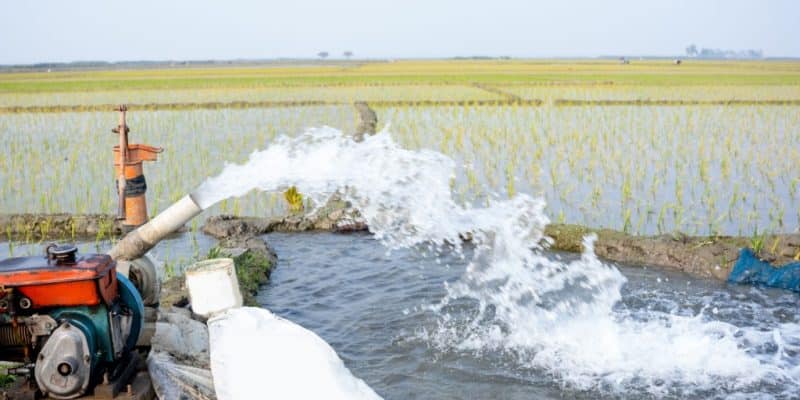Long-awaited by the people of Niger, the Large-Scale Irrigation Development Programme (PDGI) has been launched. It aims to boost food security in the West African country by irrigating 21,200 hectares of additional plantations by 2027.
The Large-Scale Irrigation Development Programme (PDGI) is off to a flying start. The work was launched on 20 March 2024 by Niger’s Minister of Agriculture and Livestock, Mahaman Elhadj Ousmane, at the headquarters of the Office national des aménagements hydro agricoles (ONAHA). The agreement covers the development of 21,200 hectares of new irrigated areas in Niger. This will bring the total area under large-scale irrigation in the West African country to more than 39,700 hectares by 2027.
According to the Niger authorities, the main aim is to increase production of cereal crops such as maize, wheat and rice, which form the staple diet of the people of Niger, and thus reduce food insecurity. Annual production under the PDGI is expected to be at least 400,000 tonnes of cereal equivalent. In 2022, the grass harvest in Niger totalled more than 5.9 million tonnes, but this was insufficient for a population of 26.21 million that same year.
Development of 2,000 hectares of irrigated areas by 2024
“At least 77 sites totalling some 40,000 hectares have already been identified for the development of new schemes, and 29 schemes totalling 4,417 hectares will need to be rehabilitated,” says the Niger Ministry of Agriculture and Livestock. ONAHA, which is implementing the new irrigation programme, will also be rehabilitating 3,700 hectares of land.
Planned over four years, the work to be carried out this year includes the development of around 2,000 hectares of new irrigated perimeters, as well as the rehabilitation of 2,000 hectares of existing perimeters. Funding for these schemes will come from the national budget and the Fonds de solidarité pour la sauvegarde de la patrie (FSSP) in Niger. The other phases of the programme will continue until 2027.
Read Also – NIGER: Pisa II program for irrigation in three regions
In addition, the Large-Scale Irrigation Development Programme will help to reduce cereal imports into Niger. In 2020, cereal imports already accounted for 57% of total imports, according to the National Nutrition Information Platform (PNIN). Rice accounts for 86% of the monetary value of these imports.
Inès Magoum




